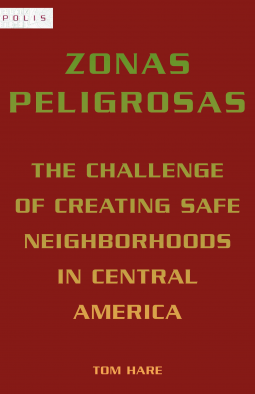
Zonas Peligrosas
The Challenge of Creating Safe Neighborhoods in Central America
by Tom Hare
This title was previously available on NetGalley and is now archived.
Send NetGalley books directly to your Kindle or Kindle app
1
To read on a Kindle or Kindle app, please add kindle@netgalley.com as an approved email address to receive files in your Amazon account. Click here for step-by-step instructions.
2
Also find your Kindle email address within your Amazon account, and enter it here.
Pub Date Apr 10 2018 | Archive Date Aug 31 2018
Talking about this book? Use #ZonasPeligrosas #NetGalley. More hashtag tips!
Description
Zonas Peligrosas: The Challenge of Creating Safe Neighborhoods in Central America examines indicators of orderliness and security in El Salvador, shows how policies and programs based on disorganization theory have been used, and why they might not make Salvadoran urban dwellers safer. In Latin America, these prescriptions form the basis for what has become known as “citizen security” policy. Just as in disorganization theory, citizen security emphasizes strong social cohesion and expectations for action on the part of neighbors and civil society.
Mimicking the methodology of disorganization theorists from the Chicago School, Tom Hare conducted four neighborhood studies in the San Salvador metropolitan area. Mixed methods, including two hundred original survey-interviews, were used to create a rich description of each case. The cases were selected in order to compare and contrast the social order in neighborhoods with varying levels of security and physical and demographic makeup.
Available Editions
| EDITION | Other Format |
| ISBN | 9780823280919 |
| PRICE | $11.00 (USD) |
| PAGES | 100 |
Links
Featured Reviews
 Reviewer 153322
Reviewer 153322
By studying four neighborhoods in San Salvador, Hare debunks the "broken windows" theory of crime fighting to offer what some areas in one of the most dangerous cities in the world have found for themselves--that physical order is far less effective than "citizen security" via social cohesion (knowing all your neighbors, not tolerating threats from within, cooperating with the army and police rather than having an anti-snitching culture). However, there's a catch: it can't be scaled up, and it makes each neighborhood--whether gang controlled or peaceful and prosperous, its own liminal bubble unwelcoming to tourists and outsiders, making even a trip across neighborhoods to a school fraught with bad possibilities.



